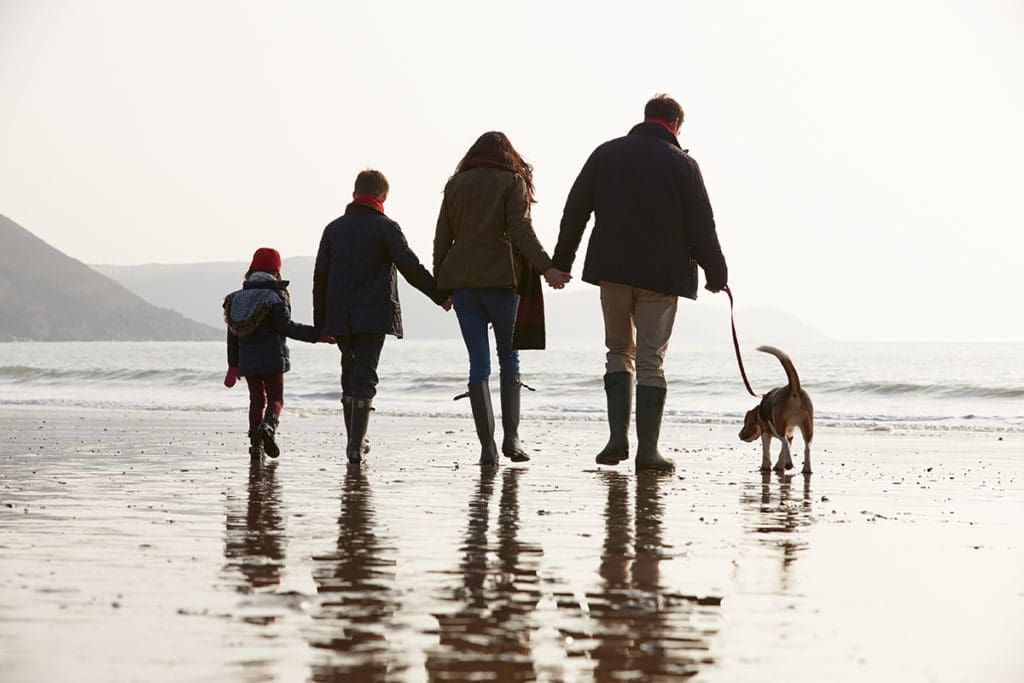Family structure – the positive team leader
In order to help our dogs learn successfully, we must be clear and consistent, and always positive, reassuring, and understanding. In a family home, it can often be difficult to remain consistent, therefore in order to avoid confusion and to help maintain structure, we advise that one adult member of the household takes on the role of the team leader.

The goal of a leader is to take responsibility for your dog’s welfare and make important decisions when necessary, whilst allowing your dog freedom to learn, understand, and ultimately choose appropriate behaviour on their own wherever they can and is suitable.
With the ability to think for themselves and act independently, our dogs can lead fulfilling lives where they can continually build and develop their confidence with the safety and support of their team leader and family.
Your family and dog are the team, and the leader is the adult who will be key in the care, welfare, and teaching your dog life skills.
Establishing the team leader
In the early days of bringing a dog into your life, when he or she first joins the family, it is important that this nominated member of the household spends additional time bonding with the dog on a one-to-one level.
Taking time to establish this team leader role will help you and the family in the long-term, reducing the chances of behaviour problems occurring, and enhancing safety in the home.
The more positive learning that your dog has from the team leader, the more effective this structure will become. Having a team leader is also crucial in providing your dog with reliable support in day-to-day activities. Should your dog encounter a new environment or unknown experience, having a leader who they trust to make the right decisions and support them through any uncertainty can make all the difference in their overall confidence and ability to gradually learn life skills in a safe and positive environment.
Outdated theories
Before accurate research was carried out, one frequently believed theory of living with a dog was that in order to live harmoniously, humans had to be ‘dominant’ over the dog. This theory derived from improper studies of wolves, and included the notion that you must always eat before your dog so that they know you are the leader, and always go through a doorway first. Out-dated, unscientific advice may state that if your dog behaves inappropriately, they will be trying to be dominant and will need putting in their place. However more recent research has improved our understanding of dog behaviour, and we now know that these aversive and punishing ‘training’ methods do far more harm than good to our dog’s behaviour, and indeed their welfare and our relationship with them.
How to build the supportive team leader role
Create clear and consistent leader lines around appropriate behaviour by:
- Rewarding correct and/or desirable behaviours as they occur; use verbal and/or physical praise, and/or high value treats
- Using visual prompts for what is expected e.g. if you don’t want your dog on the sofa all the time, then only allow them on it when their blanket is laid out on top, so rules are clear and predictable
- Consistently discourage undesirable behaviours by simply ignoring the behaviour and show them what an alternative, desired behaviour would be instead
- Being aware of the difference between being a ‘leader’ and ‘commander’- leaders are there to support the dog with navigating their own life, and provide safety and guidance when required; and not to instruct or control the dog’s behaviour and movements
Help support our life-changing work...
Imagine if everyday tasks were so challenging or physically demanding they affected your quality of life. For many people living with a disability of families with a child with autism, that is their reality. Now imagine if a specially trained four-legged friend could restore your, or your family’s, independence.
The demand for our services is high and we can’t help as many people as we would like to without more funding. Please help us continue to bring people and dogs together to help make everyday life possible in so many extraordinary ways.
Every contribution, whatever size, is important and helps us make a difference.

